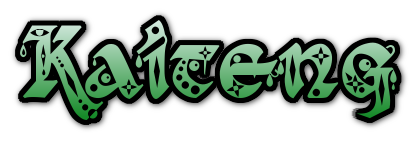| Name |
Location |
Origin |
Notes |
| Auho |
Puolanka |
Finnish |
A village by Auhojärvi lake. From the word auhto "sand-based ground; soft, fragile". Oldest written mention Auasierffui, 1560. |
| Elimyssalo |
Kuhmo |
Sámi |
An area protected for reindeer in the 1970s. There are many "Elimys-" names in the vicinity. It originates from Sámi, meaning "the highest". Elimysjärvi lake is the highest lake in the route. Salo = uninhabited area. |
| Emäjoki |
Hyrynsalmi |
Finnish |
Emä = mother, joki = river. It is the "mother" of many other rivers diverging to different directions. Oldest written mention Ämäjoki, 1675. |
| Halla |
Hyrynsalmi |
Finnish |
A house, original name Hallavaara. Halla = frost, vaara = big hill (forested fell, if you will). Killing frost is sub-zero temperature during grow season (very bad for the crops). Oldest written mention Hallavaara, 1787. |
| Hatulanmäki |
Murtomäki, Kajaani |
Name |
A village. Mäki = hill. Named after the oldest house of the village, Hatula, founded by Johan Hatuinen in 1695. |
| Hepoköngäs |
Puolanka |
Finnish |
A waterfall. Hepo = horse, köngäs = waterfall. Tradition tells the waterfall looks like a horse's tail when viewed from below. |
| Hiidenportti |
Sotkamo |
Finnish |
A part of the Porttijoki river where the river is surrounded on both sides by massive rocks (over 20 m). Portti = gate. Hiisi = sacred forest, a place of sacrifice, remote place. |
| Hiisijärvi |
Ristijärvi |
Finnish |
Originally a deep lake and a village. The lake's water level was lowered considerably in 1761. Hiisi = sacred forest, a place of sacrifice, remote place; järvi = lake. Oldest written mention Hijsi Jerfui, 1650. |
| Hiukka |
Sotkamo |
Finnish |
A shore of the Iso Sapsojärvi lake. Hiukka = fine sand. |
| Hoikka |
Hyrynsalmi |
Finnish |
A house, a village, the Hoikkajärvi lake. The house was originally Kerälä, founded by the Keränen family in early 1600s. Hoikka = slim. Oldest written mention Hoika Jerfui, 1650. |
| Hossa |
Suomussalmi |
Sámi |
A village around the Hossanjärvi lake. To the north is the Huosiusjärvi lake. Hossa and Huosius both mean the rough horsetail plant: Hossa is of Sámi origin (hoašša) and huosius of Kainuu-White Sea Karelia origin (huosie). Oldest written mention Hossa Jerfui, 1650. |
| Huuhilonjärvi |
Kuhmo |
East Finnish |
A lake. From huuhta = a swidden made in an old-growth forest. Oldest written mention Huhila Järf, 1650. |
| Hyrynsalmi |
|
Ostrobothnian, name? |
A municipality and village. Originally named after the nearby lake Hyrynjärvi. It was named by Ostrobothnians (in Ostrobothnia there was a family called Hyry in the 1500s). Oldest written mentions Hyrijerffui, 1577, and Hÿrÿ Salmj, 1635. |
| Hövelö |
Paltaniemi, Kajaani |
Kainuu |
Multiple related names in Paltaniemi and other places in Kainuu (15 in total). Hövelö = a wet place. |
| Iivantiira |
Kuhmo |
Karelian, name |
A lake and a village. From the Karelian name Iiva, Iivana (from Russian Ivan). Also known as Iivantiera. Oldest written mention Ifandira, 1650. |
| Jaalanka |
Vaala (ex-Kainuu) |
Sámi |
A village. From Sámi "cut, open". Oldest written mention Jalanga, 1555. |
| Jonkeri |
Kuhmo |
Sámi, name |
A lake and a village. Possibly from Sámi man's name Jonko. Oldest written mention Wongero Jerfui, 1650. |
| Jormaskylä |
Sotkamo |
Karelian, name |
A village around the Jormasjärvi lake. Kylä = village. From Karelian man's name Jorma or the surname derived from it, Jormanen. Oldest written mention Jormoiarffwj, 1526. |
| Jormua |
Kajaani |
Karelian, name |
A village around the Jormuanlahti bay. From Karelian man's name Jorma. Oldest written mention Jormaslax, 1577. |
| Jumalisjärvi |
Suomussalmi |
Unknown |
A lake. A theory suggests it would come from a personal name. However, no name resembling "Jumalis-" has been recorded from Kainuu in the 1600s. Oldest written mention Jumalis Jerfwi, 1687. |
| Juntinsalo |
Kuhmo |
Finnish, name |
A forest and a swamp. From the male name Juntti, a version of Johannes. Salo = uninhabited area. |
| Juntusranta |
Suomussalmi |
Finnish, name |
A village. From the surname Juntunen. Original name Kylmäsalmi ("Cold Strait"), Juntusranta name developed during the 1800s. |
| Juortananjärvi |
Vartius, Kuhmo |
Karelian |
A lake. From the Bible, "Jordan". Likely of Karelian (=Eastern Orthodox) origin, referring to the act of blessing water. Oldest written mention Jordan Jerfui, 1650. |
| Juurikkajoki |
Sotkamo |
Finnish |
A river, close by Juurikka swamp, hill, bay, etc. Juurikka = a stump with the roots. Such places were used for traps when hunting for landfowl. Oldest written mention Jurika Jåkj, 1689. |
| Jylhämä |
Vaala (ex-Kainuu) |
Finnish |
A village. Jylhä = mighty, scary. Probably refers to the closeby Niskakoski rapids. |
| Jämäs |
Kuhmo |
Sámi |
A village. From Sámi jámeš = deceased, dead. |
| Jäätiönlahti |
Sotkamo |
Finnish |
A bay. From jäätie = ice road. Oldest written mention Jäätien lax, 1644. |
| Kainua |
Ristijärvi; Kajaani; Paltamo |
Proto-Norse |
Seven "Kainua" related names in Kainuu: Kainuansalmi, Kainuanniemi (Kainuunniemi), Kainuansaari, Kainuannurmi, and Kainuanmäki. Many possible explanations for the origin of the name. One explanation is it would come from Proto-Norse *gainu-z = gap, jaw, which is the origin of the term kainu(s), relating to dragnets or sleighs, which had already made its way to southwestern Finnish dialects by the year 200 CE. It spread forward due to hunting, fishing and burn-clearing in the wild. The word became to be used about gaps fishermen could use to reach island-filled sea and back home. The "Kainua" names of Kainuu might originate from before the year 1000 CE. Oldest written mention Kainoniemi, 1570.
During the middle ages and 16th century, the Karelians and Russians called Ostrobothnia "Kainuu" (in Russian "Kajanskaja Zemlja"), and Russians used this about modern day Kainuu too at least from 16th century onwards. |
| Kaitainsalmi |
Sotkamo |
Finnish |
A strait. From kaita = slim. Oldest written mention Kiemaskaia, 1650. |
| Kajaani |
|
Russian |
A town. From the Russian version of Kainuu: Kajánij. Before becoming the name of the town, it was the name of the castle around which the town was formed: Kajaneborg. Oldest written mention Caijane Socken, 1650. |
| Kankarinlahti |
Vaala (ex-Kainuu) |
Southwestern Finnish |
Kankari bay. Includes a word that is nowadays only really known from Southwestern Finland: kangar, kankare = sand plains. The word does not exist in the Kainuu dialect. The sand at this bay is especially fine. Oldest written mention Kangar lahden pohia, 1555. |
| Karpinvaara |
Hyrynsalmi |
Finnish, name |
A wide and tall hill ("vaara"). From the surname Karppinen, which has been one of the most common surnames in Kainuu ever since the late 16th century. Oldest written mention Karpiaisenwara, 1697. |
| Katerma |
Kuhmo |
Unknown |
A village. Oldest written mention Katerma, 1605. Unknown origin, likely originally referred to the nearby rapids. According to local story, the origin of the name is that a Karelian person would've arrived at land from the rapids and said: "Ka termäh tultih" ("And we've arrived at the riverbank"). |
| Kaurojärvi |
Kuhmo |
Karelian |
|

